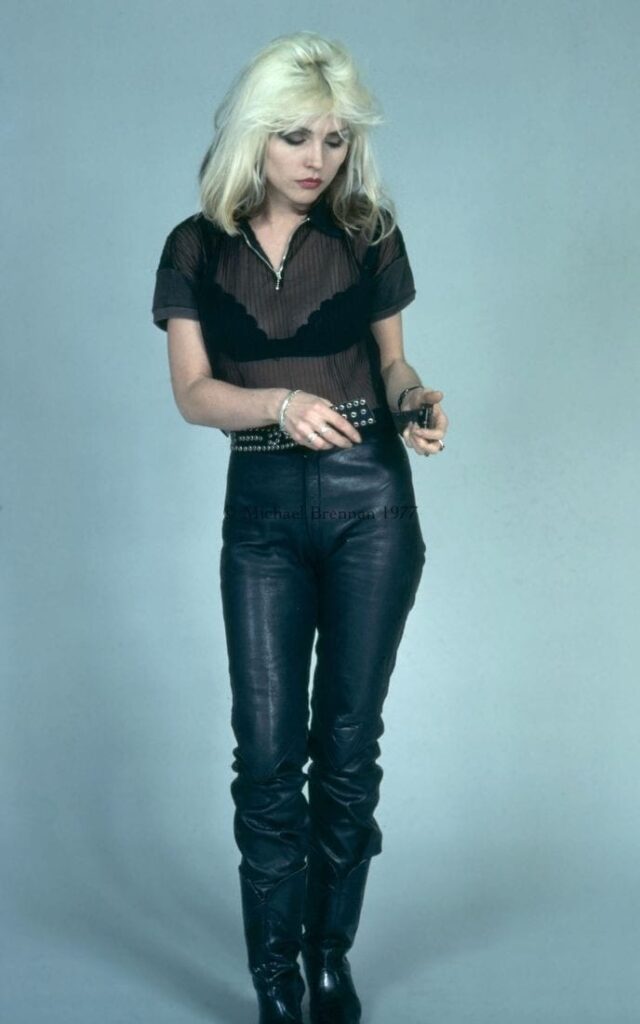
Debbie Harry, the iconic American singer, songwriter, and actress, has left an indelible mark on music and pop culture. Born on July 1, 1945, in Miami, Florida, Harry rose to fame in the 1970s as the charismatic lead vocalist of the groundbreaking band Blondie. Known for her distinctive voice, platinum-blonde hair, and daring style, Harry became an emblem of the punk rock and new wave movements, influencing both music and fashion for decades.
The Rise of Blondie: A Genre-Bending Phenomenon
Blondie’s unique blend of punk rock, new wave, disco, and reggae set them apart from their contemporaries in the late 1970s and early 1980s. Their sound was as eclectic as it was captivating, attracting fans across multiple genres. While the band’s lineup evolved over the years, it was Debbie Harry’s voice and presence that became the defining element of Blondie’s identity.
Some of Blondie’s biggest and most enduring hits include “Heart of Glass,” “Call Me,” “Rapture,” and “One Way or Another.” Each of these songs showcased Harry’s ability to seamlessly navigate various musical styles, from the funky, disco-tinged “Heart of Glass” to the explosive rock energy of “One Way or Another.” “Rapture,” which made Blondie the first band to have a rap song hit number one on the Billboard Hot 100, was a perfect example of their genre-defying innovation.
Harry’s voice became synonymous with Blondie’s success. Her ability to balance sultry melodies with punk-rock intensity gave the band an unmistakable edge. In addition to her vocal prowess, her striking appearance—with her platinum blonde hair and edgy, fashion-forward style—made her a pop culture icon, influencing everything from fashion to music videos.
Debbie Harry: A Star Beyond Blondie
While Blondie made her a household name, Debbie Harry was more than just the face of the band. As a solo artist, she continued to showcase her versatility. Harry released solo albums that further cemented her status as a trailblazer in music. Songs like “Backfired” and “French Kissin’ in the USA” highlighted her ability to move seamlessly from new wave to pop, while maintaining the punk energy that defined her early work.
But Debbie Harry’s creative talents weren’t confined to music alone. She also pursued an acting career, making her mark in the world of cinema. She delivered memorable performances in films such as Videodrome (1983), where she played a role in David Cronenberg’s surreal thriller, and Hairspray (1988), where she brought her distinctive charisma to a different kind of performance. Harry’s acting career was as varied as her musical one, showcasing her dynamic range and willingness to step outside her comfort zone.
A Timeless Influence
What truly sets Debbie Harry apart is her lasting influence on both music and fashion. As a punk icon, she epitomized the rebellious spirit of the era, blending high fashion with punk aesthetics in ways that made her an enduring symbol of individuality. Her style—characterized by her platinum blonde hair, bold makeup, and daring outfits—was a key part of Blondie’s identity and has continued to inspire generations of musicians, artists, and fashionistas.
Debbie Harry’s impact is not just confined to her musical achievements but extends into her role as a pioneering woman in rock. She broke down barriers for female musicians, proving that women could be at the forefront of a genre that was often dominated by men. Her boldness in both her music and her persona empowered many others to embrace their own individuality and defy conventions.
Legacy: The Queen of Punk and New Wave
Throughout her career, Debbie Harry has remained a relevant and influential figure in pop culture. Her work with Blondie and her solo projects continue to resonate with fans new and old, and her contributions to fashion and music are celebrated across generations. Harry’s ability to adapt to changing musical trends while remaining true to her unique voice has solidified her as one of the most iconic artists of all time.
From the punk rebellion of Blondie to her status as a fashion and cultural icon, Debbie Harry remains a testament to the power of artistic reinvention and individuality. Whether she’s on stage, on screen, or influencing the next wave of musicians and artists, her legacy is undeniable—and it’s clear that Debbie Harry will continue to be a timeless figure in the worlds of music and pop culture for years to come.
I liked her and the band for years!
But she/they never played in Winnipeg and time is running out now I assume.